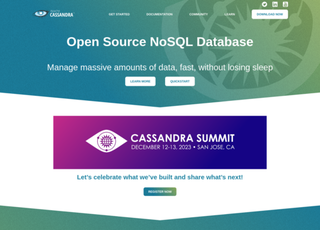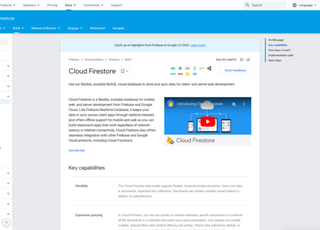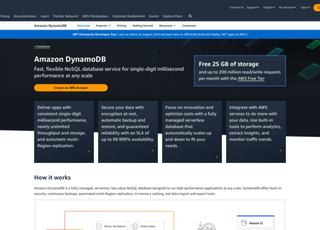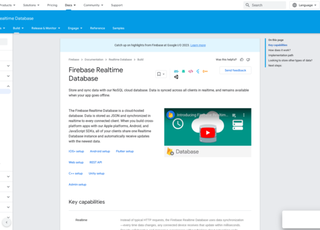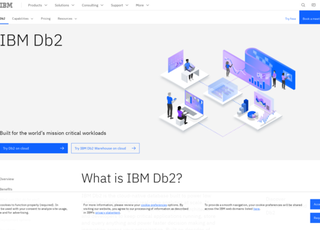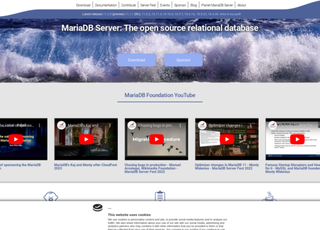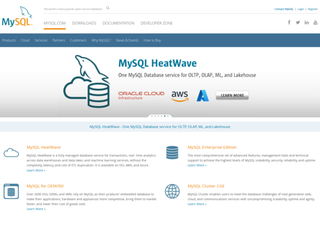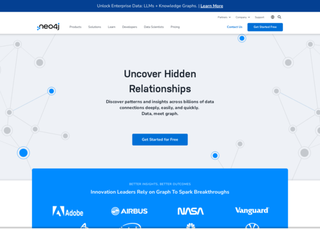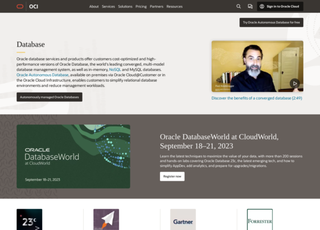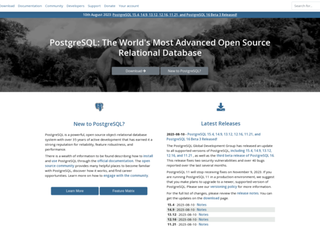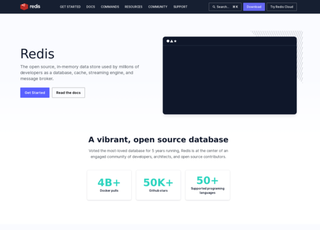Microsoft SQL Server
https://www.microsoft.com/en-us/sql-server/sql-server-downloadsMicrosoft SQL Server
Microsoft SQL Server is a relational database management system (RDBMS) developed by Microsoft. As an RDBMS, it is a software platform used for storing, managing, and retrieving data as required by other software applications.
Here are some key aspects of Microsoft SQL Server:
Data Storage and Retrieval
SQL Server uses a table-based format for storing data. Each table contains rows and columns, similar to a spreadsheet, allowing for efficient data storage, retrieval, and manipulation.
SQL (Structured Query Language)
SQL Server utilizes SQL, a standard programming language for interacting with relational databases. SQL allows users to query the database, update data, create and modify schema, and control access to data.
Transaction Management
It supports transactions, which are sequences of operations performed as a single logical unit of work. SQL Server ensures that either all operations in a transaction are completed successfully or none of them are, maintaining database integrity.
Security Features
SQL Server provides robust security features, including authentication, authorization, data encryption, and auditing. These features help protect sensitive data and ensure that only authorized users can access or modify it.
Performance Optimization
SQL Server includes several tools and features to optimize performance, like indexing, which helps speed up data retrieval, and query optimization, which ensures that queries are executed in the most efficient manner possible.
Scalability and High Availability
It is designed to handle large amounts of data and a high number of simultaneous users. Features like clustering, replication, and log shipping help in achieving high availability and disaster recovery.
Integration Services
SQL Server offers integration services that allow for data to be imported from or exported to other databases or files. This makes it easier to integrate with other systems and handle data from different sources.
Reporting and Analysis Services
It provides tools for generating reports and analyzing data, which are crucial for business intelligence. These tools allow organizations to make data-driven decisions based on comprehensive reports and data analyses.
Cloud Compatibility
SQL Server can be run on-premises, in the cloud (such as on Azure SQL Database), or in a hybrid environment, offering flexibility depending on the needs of the business.
Versioning and Editions
Over the years, Microsoft has released different versions and editions of SQL Server, catering to different sizes of organizations and various needs, from lightweight applications to large-scale enterprise solutions.
Compatibility and Interoperability
SQL Server is known for its compatibility with various platforms and languages. While it is a Microsoft product, recent versions have expanded support to include Linux and Docker containers, broadening its usability across different environments. It also integrates well with other Microsoft products like Excel, SharePoint, and .NET framework, allowing for seamless data interaction.
Management Tools
Microsoft provides several tools for managing SQL Server databases. The most notable is SQL Server Management Studio (SSMS), a graphical interface used for configuring, managing, and administering all components within Microsoft SQL Server. It's highly user-friendly and allows for complex database management tasks to be performed easily.
Advanced Analytics
SQL Server includes features for advanced analytics, such as Machine Learning Services and R integration. This enables users to run R and Python scripts in-database to perform advanced analytical computations closer to the data, enhancing performance and security.
Data Warehousing
SQL Server is also often used in data warehousing as it can handle large volumes of data and complex queries efficiently. Its ability to integrate and analyze large datasets makes it a good choice for business intelligence and data warehousing solutions.
Always On Availability Groups
This feature provides high availability and disaster recovery solution. It allows users to group multiple databases that can be replicated and failover together, ensuring continuous data availability and minimal downtime.
Resource Management
SQL Server provides Resource Governor, a feature that allows database administrators to manage SQL Server workload and system resource consumption. Administrators can allocate resources among different applications and users, ensuring that critical processes get the resources they need.
Community and Support
Microsoft SQL Server has a strong community presence, including forums, user groups, and a vast array of online resources. Microsoft also offers robust support, including regular updates, security patches, and technical assistance.
Licensing and Cost
SQL Server licensing can vary based on the edition and deployment model. Microsoft offers editions ranging from a free Express version, which is suitable for small applications and learning purposes, to more advanced and feature-rich Enterprise editions which are aimed at larger businesses and organizations.
Programming Languages Integration:
Microsoft SQL Server integrates with several programming languages, allowing developers to interact with the database, manipulate data, and integrate SQL Server functionalities into their applications. Here's an overview of some key programming language integrations:
Transact-SQL (T-SQL)
T-SQL is SQL Server's own extension of the SQL standard. It adds procedural programming and local variable capability, making it a primary language for writing SQL Server queries and stored procedures.
.NET Framework Languages (C#, VB.NET, etc.)
SQL Server integrates seamlessly with .NET languages (C#, VB.NET) through the .NET Framework's SQL Server Data Provider. This integration allows developers to build robust applications with various .NET languages and manage data in SQL Server efficiently.
Python
Starting with SQL Server 2017, Python is supported for in-database analytics and machine learning. You can run Python scripts directly within SQL Server, using the power of Python for data analysis, machine learning, and more, while benefiting from the performance and security of the database server.
R
Similar to Python, R is integrated for in-database analytics in SQL Server. This is particularly useful for data scientists who can run R scripts within SQL Server, eliminating the need to move data around for analysis.
Java
With SQL Server 2019 and later, there is enhanced support for Java, allowing the execution of Java code on the SQL Server. This is part of SQL Server's language extension capability, which lets you run code in languages other than T-SQL directly on the server.
PHP
SQL Server can be accessed from PHP applications, typically using the Microsoft Drivers for PHP for SQL Server. This allows web applications built with PHP to interact with data stored in SQL Server.
Node.js
Node.js applications can connect to SQL Server using various npm packages such as tedious. This integration is crucial for building modern, full-stack applications that rely on SQL Server for data storage.
PowerShell
SQL Server includes a PowerShell module to automate server management and data manipulation tasks. PowerShell scripts can be used to perform a variety of administrative tasks on SQL Server instances.
Ruby, Perl, and other languages
Through ODBC (Open Database Connectivity) and other connectors, SQL Server can be accessed from various other programming languages like Ruby and Perl, offering a flexible development environment.
SSIS (SQL Server Integration Services)
While not a programming language, SSIS is a platform for data integration and workflow applications. It can be used to solve complex business problems by copying or downloading files, extracting and transforming data from different data sources, and loading data into one or several destinations.
Each of these integrations allows developers to use their preferred programming language to access, manipulate, and manage data in SQL Server, making it a versatile choice for various software development scenarios.
Microsoft SQL Server is a versatile, robust, and feature-rich RDBMS that caters to a wide range of data storage and management needs. Its continuous evolution and adaptation to modern technologies like cloud computing and machine learning make it a significant player in the database management space.





















